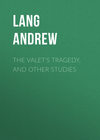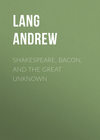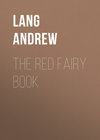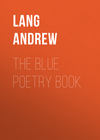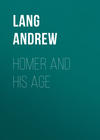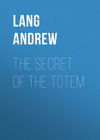Kitabı oku: «Waverley; Or, 'Tis Sixty Years Since», sayfa 16
CHAPTER XVIII
WAVERLEY PROCEEDS ON HIS JOURNEY
When Edward had collected his scattered recollection, he was surprised to observe the cavern totally deserted. Having arisen and put his dress in some order, he looked more accurately round him; but all was still solitary. If it had not been for the decayed brands of the fire, now sunk into grey ashes, and the remnants of the festival, consisting of bones half burnt and half gnawed, and an empty keg or two, there remained no traces of Donald and his band. When Waverley sallied forth to the entrance of the cave, he perceived that the point of rock, on which remained the marks of last night’s beacon, was accessible by a small path, either natural or roughly hewn in the rock, along the little inlet of water which ran a few yards up into the cavern, where, as in a wetdock, the skiff which brought him there the night before was still lying moored. When he reached the small projecting platform on which the beacon had been established, he would have believed his further progress by land impossible, only that it was scarce probable but what the inhabitants of the cavern had some mode of issuing from it otherwise than by the lake. Accordingly, he soon observed three or four shelving steps, or ledges of rock, at the very extremity of the little platform; and, making use of them as a staircase, he clambered by their means around the projecting shoulder of the crag on which the cavern opened, and, descending with some difficulty on the other side, he gained the wild and precipitous shores of a Highland loch, about four miles in length and a mile and a half across, surrounded by heathy and savage mountains, on the crests of which the morning mist was still sleeping.
Looking back to the place from which he came, he could not help admiring the address which had adopted a retreat of such seclusion and secrecy. The rock, round the shoulder of which he had turned by a few imperceptible notches, that barely afforded place for the foot, seemed, in looking back upon it, a huge precipice, which barred all further passage by the shores of the lake in that direction. There could be no possibility, the breadth of the lake considered, of descrying the entrance of the narrow and low-browed cave from the other side; so that, unless the retreat had been sought for with boats, or disclosed by treachery, it might be a safe and secret residence to its garrison as long as they were supplied with provisions. Having satisfied his curiosity in these particulars, Waverley looked around for Evan Dhu and his attendants, who, he rightly judged, would be at no great distance, whatever might have become of Donald Bean Lean and his party, whose mode of life was, of course, liable to sudden migrations of abode. Accordingly, at the distance of about half a mile, he beheld a Highlander (Evan apparently) angling in the lake, with another attending him, whom, from the weapon which he shouldered, he recognised for his friend with the battle-axe.
Much nearer to the mouth of the cave he heard the notes of a lively Gaelic song, guided by which, in a sunny recess, shaded by a glittering birch-tree, and carpeted with a bank of firm white sand, he found the damsel of the cavern, whose lay had already reached him, busy, to the best of her power, in arranging to advantage a morning repast of milk, eggs, barley-bread, fresh butter, and honey-comb. The poor girl had already made a circuit of four miles that morning in search of the eggs, of the meal which baked her cakes, and of the other materials of the breakfast, being all delicacies which she had to beg or borrow from distant cottagers. The followers of Donald Bean Lean used little food except the flesh of the animals which they drove away from the Lowlands; bread itself was a delicacy seldom thought of, because hard to be obtained, and all the domestic accommodations of milk, poultry, butter, etc., were out of the question in this Scythian camp. Yet it must not be omitted that, although Alice had occupied a part of the morning in providing those accommodations for her guest which the cavern did not afford, she had secured time also to arrange her own person in her best trim. Her finery was very simple. A short russet-coloured jacket and a petticoat of scanty longitude was her whole dress; but these were clean, and neatly arranged. A piece of scarlet embroidered cloth, called the snood, confined her hair, which fell over it in a profusion of rich dark curls. The scarlet plaid, which formed part of her dress, was laid aside, that it might not impede her activity in attending the stranger. I should forget Alice’s proudest ornament were I to omit mentioning a pair of gold ear-rings and a golden rosary, which her father (for she was the daughter of Donald Bean Lean) had brought from France, the plunder, probably, of some battle or storm.
Her form, though rather large for her years, was very well proportioned, and her demeanour had a natural and rustic grace, with nothing of the sheepishness of an ordinary peasant. The smiles, displaying a row of teeth of exquisite whiteness, and the laughing eyes, with which, in dumb show, she gave Waverley that morning greeting which she wanted English words to express, might have been interpreted by a coxcomb, or perhaps by a young soldier who, without being such, was conscious of a handsome person, as meant to convey more than the courtesy of an hostess. Nor do I take it upon me to say that the little wild mountaineer would have welcomed any staid old gentleman advanced in life, the Baron of Bradwardine, for example, with the cheerful pains which she bestowed upon Edward’s accommodation. She seemed eager to place him by the meal which she had so sedulously arranged, and to which she now added a few bunches of cranberries, gathered in an adjacent morass. Having had the satisfaction of seeing him seated at his breakfast, she placed herself demurely upon a stone at a few yards’ distance, and appeared to watch with great complacency for some opportunity of serving him.
Evan and his attendant now returned slowly along the beach, the latter bearing a large salmon-trout, the produce of the morning’s sport, together with the angling-rod, while Evan strolled forward, with an easy, self-satisfied, and important gait, towards the spot where Waverley was so agreeably employed at the breakfast-table. After morning greetings had passed on both sides, and Evan, looking at Waverley, had said something in Gaelic to Alice, which made her laugh, yet colour up to her eyes, through a complexion well en-browned by sun and wind, Evan intimated his commands that the fish should be prepared for breakfast. A spark from the lock of his pistol produced a light, and a few withered fir branches were quickly in flame, and as speedily reduced to hot embers, on which the trout was broiled in large slices. To crown the repast, Evan produced from the pocket of his short jerkin a large scallop shell, and from under the folds of his plaid a ram’s horn full of whisky. Of this he took a copious dram, observing he had already taken his MORNING with Donald Bean Lean before his departure; he offered the same cordial to Alice and to Edward, which they both declined. With the bounteous air of a lord, Evan then proffered the scallop to Dugald Mahony, his attendant, who, without waiting to be asked a second time, drank it off with great gusto. Evan then prepared to move towards the boat, inviting Waverley to attend him. Meanwhile, Alice had made up in a small basket what she thought worth removing, and flinging her plaid around her, she advanced up to Edward, and with the utmost simplicity, taking hold of his hand, offered her cheek to his salute, dropping at the same time her little curtsy. Evan, who was esteemed a wag among the mountain fair, advanced as if to secure a similar favour; but Alice, snatching up her basket, escaped up the rocky bank as fleetly as a roe, and, turning round and laughing, called something out to him in Gaelic, which he answered in the same tone and language; then, waving her hand to Edward, she resumed her road, and was soon lost among the thickets, though they continued for some time to hear her lively carol, as she proceeded gaily on her solitary journey.
They now again entered the gorge of the cavern, and stepping into the boat, the Highlander pushed off, and, taking advantage of the morning breeze, hoisted a clumsy sort of sail, while Evan assumed the helm, directing their course, as it appeared to Waverley, rather higher up the lake than towards the place of his embarkation on the preceding night. As they glided along the silver mirror, Evan opened the conversation with a panegyric upon Alice, who, he said, was both CANNY and FENDY; and was, to the boot of all that, the best dancer of a strathspey in the whole strath. Edward assented to her praises so far as he understood them, yet could not help regretting that she was condemned to such a perilous and dismal life.
‘Oich! for that,’ said Evan, ‘there is nothing in Perthshire that she need want, if she ask her father to fetch it, unless it be too hot or too heavy.’
‘But to be the daughter of a cattle-stealer – a common thief!’ ‘Common thief! – no such thing: Donald Bean Lean never LIFTED less than a drove in his life.’
‘Do you call him an uncommon thief, then?’
‘No; he that steals a cow from a poor widow, or a stirk from a cotter, is a thief; he that lifts a drove from a Sassenach laird is a gentleman-drover. And, besides, to take a tree from the forest, a salmon from the river, a deer from the hill, or a cow from a Lowland strath, is what no Highlander need ever think shame upon.’
‘But what can this end in, were he taken in such an appropriation?’
‘To be sure he would DIE FOR THE LAW, as many a pretty man has done before him.’
‘Die for the law!’
‘Ay; that is, with the law, or by the law; be strapped up on the KIND gallows of Crieff, [Footnote: See Note 16.] where his father died, and his goodsire died, and where I hope he’ll live to die himsell, if he’s not shot, or slashed, in a creagh.’
‘You HOPE such a death for your friend, Evan?’
‘And that do I e’en; would you have me wish him to die on a bundle of wet straw in yon den of his, like a mangy tyke?’
‘But what becomes of Alice, then?’
‘Troth, if such an accident were to happen, as her father would not need her help ony langer, I ken nought to hinder me to marry her mysell.’
‘Gallantly resolved,’ said Edward; ‘but, in the meanwhile, Evan, what has your father-in-law (that shall be, if he have the good fortune to be hanged) done with the Baron’s cattle?’
‘Oich,’ answered Evan, ‘they were all trudging before your lad and Allan Kennedy before the sun blinked ower Ben Lawers this morning; and they’ll be in the pass of Bally-Brough by this time, in their way back to the parks of Tully-Veolan, all but two, that were unhappily slaughtered before I got last night to Uaimh an Ri.’
‘And where are we going, Evan, if I may be so bold as to ask?’ said Waverley.
‘Where would you be ganging, but to the Laird’s ain house of Glennaquoich? Ye would not think to be in his country, without ganging to see him? It would be as much as a man’s life’s worth.’
‘And are we far from Glennaquoich?’
‘But five bits of miles; and Vich Ian Vohr will meet us.’
In about half an hour they reached the upper end of the lake, where, after landing Waverley, the two Highanders drew the boat into a little creek among thick flags and reeds, where it lay perfectly concealed. The oars they put in another place of concealment, both for the use of Donald Bean Lean probably, when his occasions should next bring him to that place.
The travellers followed for some time a delightful opening into the hills, down which a little brook found its way to the lake. When they had pursued their walk a short distance, Waverley renewed his questions about their host of the cavern.
‘Does he always reside in that cave?’
‘Out, no! it’s past the skill of man to tell where he’s to be found at a’ times; there’s not a dern nook, or cove, or corrie, in the whole country that he’s not acquainted with.’
‘And do others beside your master shelter him?’
‘My master? MY master is in Heaven,’ answered Evan, haughtily; and then immediately assuming his usual civility of manner, ‘but you mean my Chief; – no, he does not shelter Donald Bean Lean, nor any that are like him; he only allows him (with a smile) wood and water.’
‘No great boon, I should think, Evan, when both seem to be very plenty.’
‘Ah! but ye dinna see through it. When I say wood and water, I mean the loch and the land; and I fancy Donald would be put till ‘t if the Laird were to look for him wi’ threescore men in the wood of Kailychat yonder; and if our boats, with a score or twa mair, were to come down the loch to Uaimh an Ri, headed by mysell, or ony other pretty man.’
‘But suppose a strong party came against him from the Low Country, would not your Chief defend him?’
‘Na, he would not ware the spark of a flint for him – if they came with the law.’
‘And what must Donald do, then?’
‘He behoved to rid this country of himsell, and fall back, it may be, over the mount upon Letter Scriven.’
‘And if he were pursued to that place?’
‘I’se warrant he would go to his cousin’s at Rannoch.’
‘Well, but if they followed him to Rannoch?’
‘That,’ quoth Evan, ‘is beyond all belief; and, indeed, to tell you the truth, there durst not a Lowlander in all Scotland follow the fray a gun-shot beyond Bally-Brough, unless he had the help of the Sidier Dhu.’
‘Whom do you call so?’
‘The Sidier Dhu? the black soldier; that is what they call the independent companies that were raised to keep peace and law in the Highlands. Vich Ian Vohr commanded one of them for five years, and I was sergeant mysell, I shall warrant ye. They call them Sidier Dhu because they wear the tartans, as they call your men – King George’s men – Sidier Roy, or red soldiers.’
‘Well, but when you were in King George’s pay, Evan, you were surely King George’s soldiers?’
‘Troth, and you must ask Vich Ian Vohr about that; for we are for his king, and care not much which o’ them it is. At ony rate, nobody can say we are King George’s men now, when we have not seen his pay this twelve-month.’
This last argument admitted of no reply, nor did Edward attempt any; he rather chose to bring back the discourse to Donald Bean Lean. ‘Does Donald confine himself to cattle, or does he LIFT, as you call it, anything else that comes in his way?’
‘Troth, he’s nae nice body, and he’ll just tak onything, but most readily cattle, horse, or live Christians; for sheep are slow of travel, and inside plenishing is cumbrous to carry, and not easy to put away for siller in this country.’
‘But does he carry off men and women?’
‘Out, ay. Did not ye hear him speak o’ the Perth bailie? It cost that body five hundred merks ere he got to the south of Bally-Brough. And ance Donald played a pretty sport. [Footnote: See Note 17.] There was to be a blythe bridal between the Lady Cramfeezer, in the howe o’ the Mearns (she was the auld laird’s widow, and no sae young as she had been hersell), and young Gilliewhackit, who had spent his heirship and movables, like a gentleman, at cock-matches, bull-baitings, horse-races, and the like. Now, Donald Bean Lean, being aware that the bridegroom was in request, and wanting to cleik the cunzie (that is, to hook the siller), he cannily carried off Gilliewhackit ae night when he was riding dovering hame (wi’ the malt rather abune the meal), and with the help of his gillies he gat him into the hills with the speed of light, and the first place he wakened in was the cove of Uaimh an Ri. So there was old to do about ransoming the bridegroom; for Donald would not lower a farthing of a thousand punds – ’
‘The devil!’
‘Punds Scottish, ye shall understand. And the lady had not the siller if she had pawned her gown; and they applied to the governor o’ Stirling castle, and to the major o’ the Black Watch; and the governor said it was ower far to the northward, and out of his district; and the major said his men were gane hame to the shearing, and he would not call them out before the victual was got in for all the Cramfeezers in Christendom, let alane the Mearns, for that it would prejudice the country. And in the meanwhile ye’ll no hinder Gilliewhackit to take the small-pox. There was not the doctor in Perth or Stirling would look near the poor lad; and I cannot blame them, for Donald had been misguggled by ane of these doctors about Paris, and he swore he would fling the first into the loch that he catched beyond the pass. However some cailliachs (that is, old women) that were about Donald’s hand nursed Gilliewhackit sae weel that, between the free open air in the cove and the fresh whey, deil an he did not recover maybe as weel as if he had been closed in a glazed chamber and a bed with curtains, and fed with red wine and white meat. And Donald was sae vexed about it that, when he was stout and weel, he even sent him free home, and said he would be pleased with onything they would like to gie him for the plague and trouble which he had about Gilliewhackit to an unkenn’d degree. And I cannot tell you precisely how they sorted; but they agreed sae right that Donald was invited to dance at the wedding in his Highland trews, and they said that there was never sae meikle siller clinked in his purse either before or since. And to the boot of all that, Gilliewhackit said that, be the evidence what it liked, if he had the luck to be on Donald’s inquest, he would bring him in guilty of nothing whatever, unless it were wilful arson or murder under trust.’
With such bald and disjointed chat Evan went on illustrating the existing state of the Highlands, more perhaps to the amusement of Waverley than that of our readers. At length, after having marched over bank and brae, moss and heather, Edward, though not unacquainted with the Scottish liberality in computing distance, began to think that Evan’s five miles were nearly doubled. His observation on the large measure which the Scottish allowed of their land, in comparison to the computation of their money, was readily answered by Evan with the old jest, ‘The deil take them wha have the least pint stoup.’
[Footnote: The Scotch are liberal in computing their land and liquor; the Scottish pint corresponds to two English quarts. As for their coin, every one knows the couplet —
How can the rogues pretend to sense?
Their pound is only twenty pence.]
And now the report of a gun was heard, and a sportsman was seen, with his dogs and attendant, at the upper end of the glen. ‘Shough,’ said Dugald Mahony, ‘tat’s ta Chief.’
‘It is not,’ said Evan, imperiously. ‘Do you think he would come to meet a Sassenach duinhe-wassel in such a way as that?’
But as they approached a little nearer, he said, with an appearance of mortification, ‘And it is even he, sure enough; and he has not his tail on after all; there is no living creature with him but Callum Beg.’
In fact, Fergus Mac-Ivor, of whom a Frenchman might have said as truly as of any man in the Highlands, ‘Qu’il connoit bien ses gens’ had no idea of raising himself in the eyes of an English young man of fortune by appearing with a retinue of idle Highlanders disproportioned to the occasion. He was well aware that such an unnecessary attendance would seem to Edward rather ludicrous than respectable; and, while few men were more attached to ideas of chieftainship and feudal power, he was, for that very reason, cautious of exhibiting external marks of dignity, unless at the time and in the manner when they were most likely to produce an imposing effect. Therefore, although, had he been to receive a brother chieftain, he would probably have been attended by all that retinue which Evan described with so much unction, he judged it more respectable to advance to meet Waverley with a single attendant, a very handsome Highland boy, who carried his master’s shooting-pouch and his broadsword, without which he seldom went abroad.
When Fergus and Waverley met, the latter was struck with the peculiar grace and dignity of the Chieftain’s figure. Above the middle size and finely proportioned, the Highland dress, which he wore in its simplest mode, set off his person to great advantage. He wore the trews, or close trowsers, made of tartan, chequed scarlet and white; in other particulars his dress strictly resembled Evan’s, excepting that he had no weapon save a dirk, very richly mounted with silver. His page, as we have said, carried his claymore; and the fowling-piece, which he held in his hand, seemed only designed for sport. He had shot in the course of his walk some young wild-ducks, as, though CLOSE TIME was then unknown, the broods of grouse were yet too young for the sportsman. His countenance was decidedly Scottish, with all the peculiarities of the northern physiognomy, but yet had so little of its harshness and exaggeration that it would have been pronounced in any country extremely handsome. The martial air of the bonnet, with a single eagle’s feather as a distinction, added much to the manly appearance of his head, which was besides ornamented with a far more natural and graceful cluster of close black curls than ever were exposed to sale in Bond Street.
An air of openness and affability increased the favorable impression derived from this handsome and dignified exterior. Yet a skilful physiognomist would have been less satisfied with the countenance on the second than on the first view. The eyebrow and upper lip bespoke something of the habit of peremptory command and decisive superiority. Even his courtesy, though open, frank, and unconstrained, seemed to indicate a sense of personal importance; and, upon any check or accidental excitation, a sudden, though transient lour of the eye showed a hasty, haughty, and vindictive temper, not less to be dreaded because it seemed much under its owner’s command. In short, the countenance of the Chieftain resembled a smiling summer’s day, in which, notwithstanding, we are made sensible by certain, though slight signs that it may thunder and lighten before the close of evening.
It was not, however, upon their first meeting that Edward had an opportunity of making these less favourable remarks. The Chief received him as a friend of the Baron of Bradwardine, with the utmost expression of kindness and obligation for the visit; upbraided him gently with choosing so rude an abode as he had done the night before; and entered into a lively conversation with him about Donald Bean’s housekeeping, but without the least hint as to his predatory habits, or the immediate occasion of Waverley’s visit, a topic which, as the Chief did not introduce it, our hero also avoided. While they walked merrily on towards the house of Glennaquoich, Evan, who now fell respectfully into the rear, followed with Callum Beg and Dugald Mahony.
We shall take the opportunity to introduce the reader to some particulars of Fergus Mac-Ivor’s character and history, which were not completely known to Waverley till after a connection which, though arising from a circumstance so casual, had for a length of time the deepest influence upon his character, actions, and prospects. But this, being an important subject, must form the commencement of a new chapter.

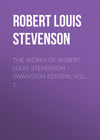

![XXXII Ballades in Blue China [1885]](https://cdn.litres.ru/pub/c/cover_100/25230660.jpg)
